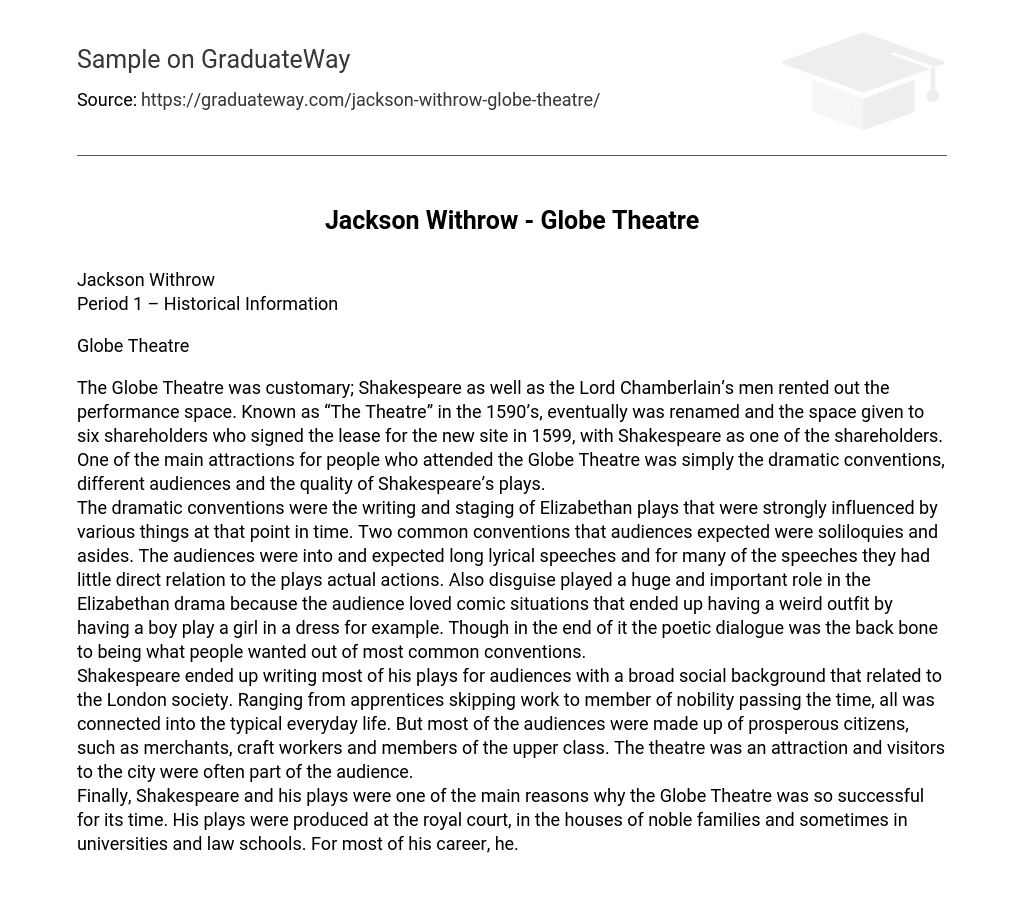The Globe Theatre was customary; Shakespeare as well as the Lord Chamberlain’s men rented out the performance space. Known as “The Theatre” in the 1590’s, eventually was renamed and the space given to six shareholders who signed the lease for the new site in 1599, with Shakespeare as one of the shareholders. One of the main attractions for people who attended the Globe Theatre was simply the dramatic conventions, different audiences and the quality of Shakespeare’s plays.
The dramatic conventions were the writing and staging of Elizabethan plays that were strongly influenced by various things at that point in time. Two common conventions that audiences expected were soliloquies and asides. The audiences were into and expected long lyrical speeches and for many of the speeches they had little direct relation to the plays actual actions.
Also disguise played a huge and important role in the Elizabethan drama because the audience loved comic situations that ended up having a weird outfit by having a boy play a girl in a dress for example. Though in the end of it the poetic dialogue was the back bone to being what people wanted out of most common conventions.
Shakespeare ended up writing most of his plays for audiences with a broad social background that related to the London society. Ranging from apprentices skipping work to member of nobility passing the time, all was connected into the typical everyday life. But most of the audiences were made up of prosperous citizens, such as merchants, craft workers and members of the upper class. The theatre was an attraction and visitors to the city were often part of the audience.
Finally, Shakespeare and his plays were one of the main reasons why the Globe Theatre was so successful for its time. His plays were produced at the royal court, in the houses of noble families and sometimes in universities and law schools.





